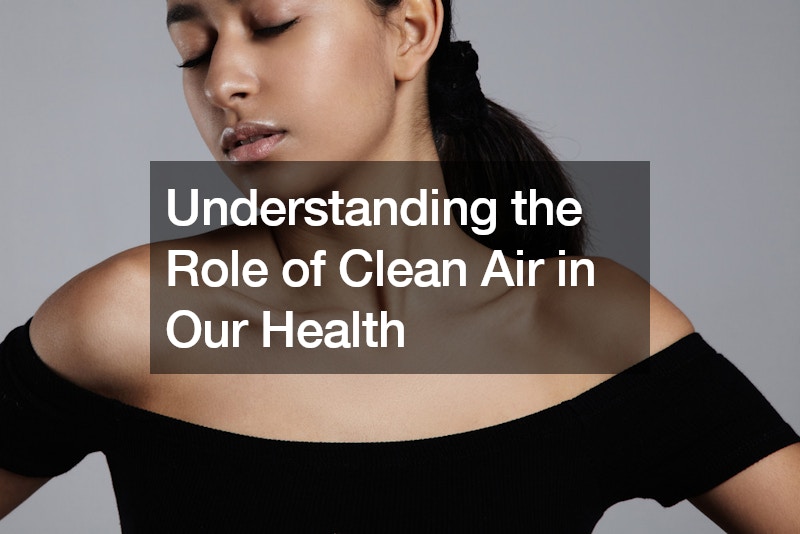
Clean air is not merely a luxury but a fundamental necessity for human health and well-being. Unfortunately, in today’s world, air pollution poses a significant threat to our respiratory and overall health. It’s an invisible enemy that lurks around us, infiltrating our bodies with toxic particles that can have severe consequences.
Air pollution comprises tiny particles that are often invisible to the naked eye. These particles, known as particulate matter, can be as minuscule as a molecule, allowing them to penetrate deep into our lungs and bloodstream with each breath we take.
Once inside our bodies, these particles trigger inflammation, setting off a cascade of adverse health effects.
The first line of defense against air pollution is our respiratory system. However, the particles are so small that they easily bypass the body’s natural defenses, infiltrating the lungs and causing inflammation. This inflammation can exacerbate respiratory conditions such as asthma and bronchitis and increase the risk of developing more severe respiratory illnesses over time.
Furthermore, the toxic compounds carried by these particles can penetrate even deeper into our bodies, affecting our cardiovascular system. Air pollution has been linked to an increased risk of heart attacks and strokes, as it inflames and constricts blood vessels, leading to hypertension and other cardiovascular conditions.
In addition to its direct impact on the respiratory and cardiovascular systems, air pollution also poses a risk of long-term health consequences. Exposure to pollutants such as nitrogen dioxide and fine particulate matter has been associated with an increased risk of lung cancer and other types of cancer. These pollutants can damage DNA and trigger mutations that may lead to the development of cancerous cells.
The detrimental effects of air pollution extend beyond individual health to encompass public health as a whole. With each new case of respiratory illness, cardiovascular disease, or cancer attributed to air pollution, the burden on healthcare systems increases, placing strain on resources and infrastructure. Moreover, air pollution can have economic repercussions, resulting in lost productivity and increased healthcare costs.
Given the pervasive threat posed by air pollution, it is imperative to take action to safeguard our air quality and protect public health. Air hygiene specialists play a crucial role in this endeavor, employing various strategies to monitor and improve air quality in indoor and outdoor environments.
One approach employed by air hygiene specialists is the implementation of air quality monitoring systems. These systems utilize advanced technology to track pollutant levels in the air, providing real-time data that can inform decision-making and help identify sources of pollution. By pinpointing areas with high pollution levels, authorities can take targeted measures to mitigate the impact and reduce exposure.
Additionally, air hygiene specialists work to raise awareness about the importance of clean air and the health risks associated with air pollution. Through education and outreach initiatives, they aim to empower individuals and communities to take proactive steps to reduce their exposure to pollutants and advocate for policies that promote clean air.
Furthermore, air hygiene specialists collaborate with policymakers, industry stakeholders, and environmental organizations to develop and implement regulations and initiatives aimed at reducing air pollution. These efforts may include measures to limit emissions from vehicles and industrial sources, promote the use of clean energy technologies, and improve urban planning to minimize exposure to pollutants.
The Importance of Indoor Air Quality
While much attention is given to outdoor air pollution, the quality of indoor air also plays a crucial role in our health. Indoor air pollutants such as mold, tobacco smoke, pet dander, and volatile organic compounds (VOCs) can have significant health implications, particularly for vulnerable populations such as children, the elderly, and individuals with respiratory conditions.
Indoor air quality is influenced by various factors, including ventilation, humidity levels, and the presence of pollutants. Poor ventilation can lead to a buildup of indoor pollutants, while high humidity levels can promote the growth of mold and mildew. Additionally, household products such as cleaning agents, paints, and furnishings can emit VOCs, further compromising indoor air quality.
Strategies for Improving Air Quality
To improve indoor air quality, air hygiene specialists recommend implementing strategies such as:
Proper Ventilation:
Ensuring adequate ventilation is essential for reducing indoor air pollutants. Opening windows and doors to allow fresh air to circulate can help dilute indoor pollutants and improve air quality. Additionally, installing mechanical ventilation systems can help remove stale air and bring in fresh outdoor air.
Air Purification:
Air purifiers can help remove airborne pollutants such as dust, pollen, and pet dander from indoor spaces. High-efficiency particulate air (HEPA) filters are particularly effective at capturing small particles, while activated carbon filters can help absorb odors and VOCs.
Source Control:
Identifying and addressing sources of indoor air pollution is critical for improving air quality. This may involve eliminating or reducing the use of products that emit VOCs, repairing water leaks to prevent mold growth, and implementing smoking bans indoors.
Humidity Control:
Maintaining optimal humidity levels (between 30% and 50%) can help prevent mold and mildew growth and minimize the spread of airborne viruses and bacteria. Using dehumidifiers or humidifiers can help regulate indoor humidity levels as needed.
In conclusion, clean air is essential for maintaining optimal health and well-being. Air pollution poses a significant threat to public health, with detrimental effects on respiratory, cardiovascular, and overall health. However, by working together and implementing measures to monitor and improve air quality, we can protect ourselves and future generations from the harmful effects of air pollution.
.




